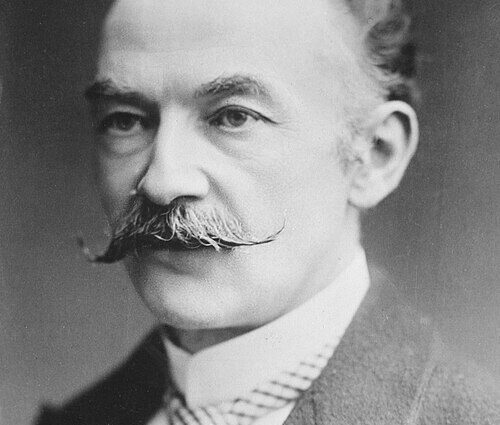Thomas Hardy (1840–1928) was a major English novelist and poet of the Victorian and early modernist eras. Born in Dorset, England, Hardy was deeply influenced by rural life, which provided the backdrop for much of his fiction. Though he began his career as an architect, he turned to writing and soon established himself with powerful and tragic novels that explore themes of fate, human suffering, and the conflict between traditional ways of life and modern forces.
Hardy’s best-known novels include Tess of the d’Urbervilles (1891), Far from the Madding Crowd (1874), The Mayor of Casterbridge (1886), and Jude the Obscure (1895). These works are set in the fictional region of “Wessex,” a semi-imaginary landscape inspired by the English West Country. His characters often struggle against rigid social norms, industrialization, and a pitiless fate, echoing Hardy’s pessimistic view of human existence.
His novels drew controversy, particularly Tess and Jude, for their criticism of Victorian morality and religion. The backlash eventually led Hardy to abandon fiction altogether and devote himself entirely to poetry. As a poet, Hardy produced a vast body of work marked by melancholic themes, personal reflection, and a deep connection to nature and history. Notable collections include Wessex Poems (1898) and Poems of the Past and the Present (1901).
Hardy’s writing style combines rich descriptive language with philosophical depth, often reflecting the influence of classical tragedy. He is seen as a transitional figure between Victorian realism and modernist experimentation. Today, Hardy is regarded as one of the greatest literary figures in English literature, whose novels and poetry continue to be studied for their emotional intensity, social critique, and exploration of the human condition. His legacy endures as a powerful voice of compassion and realism.


